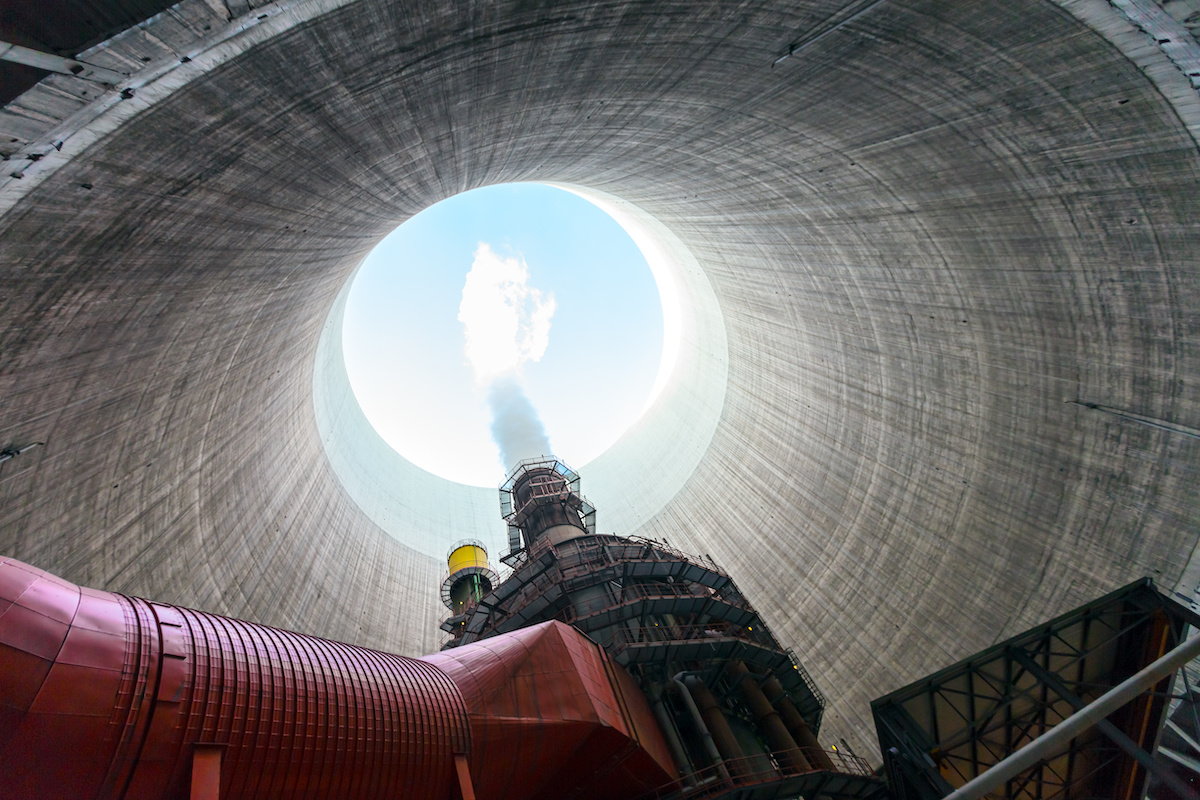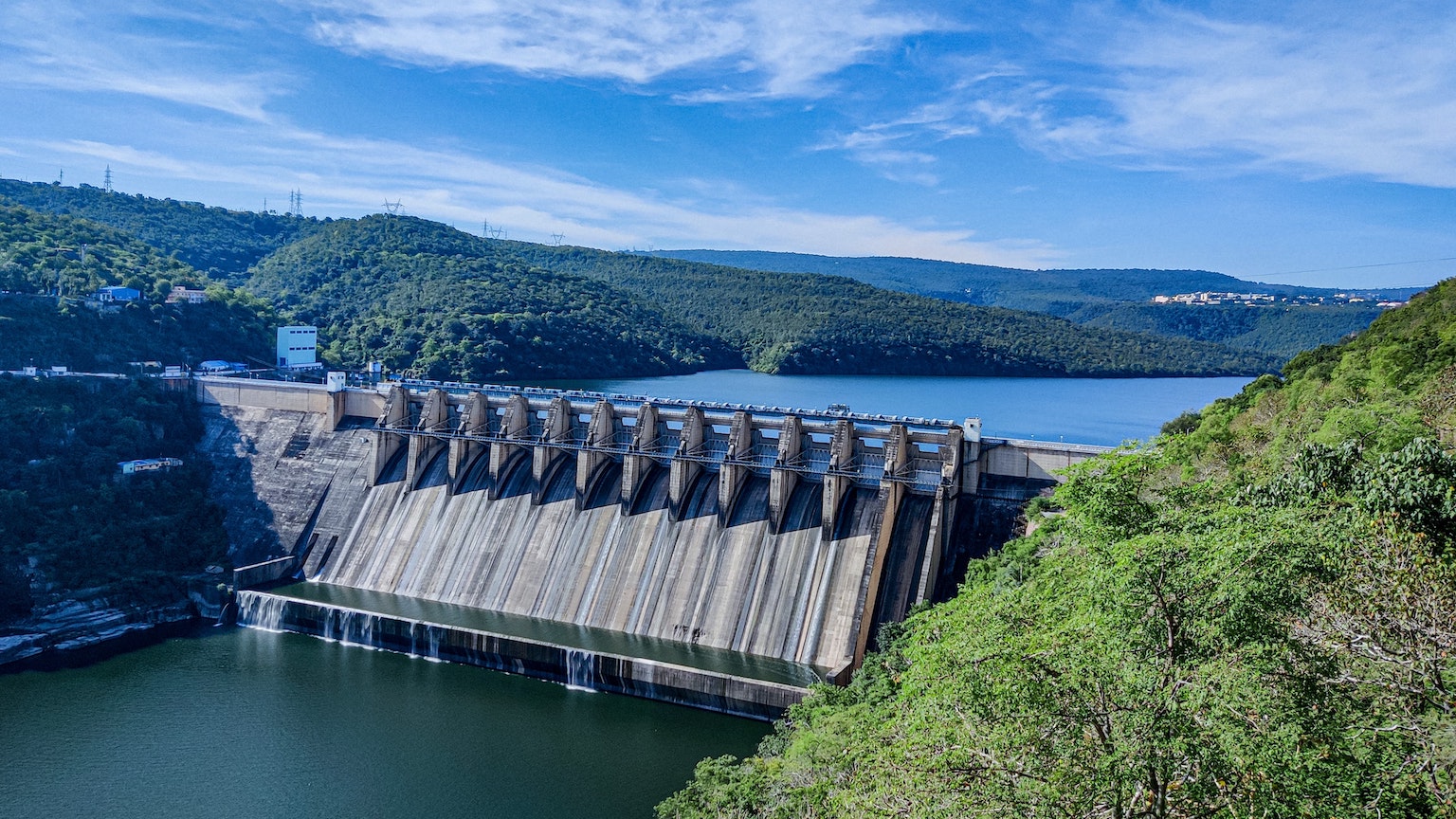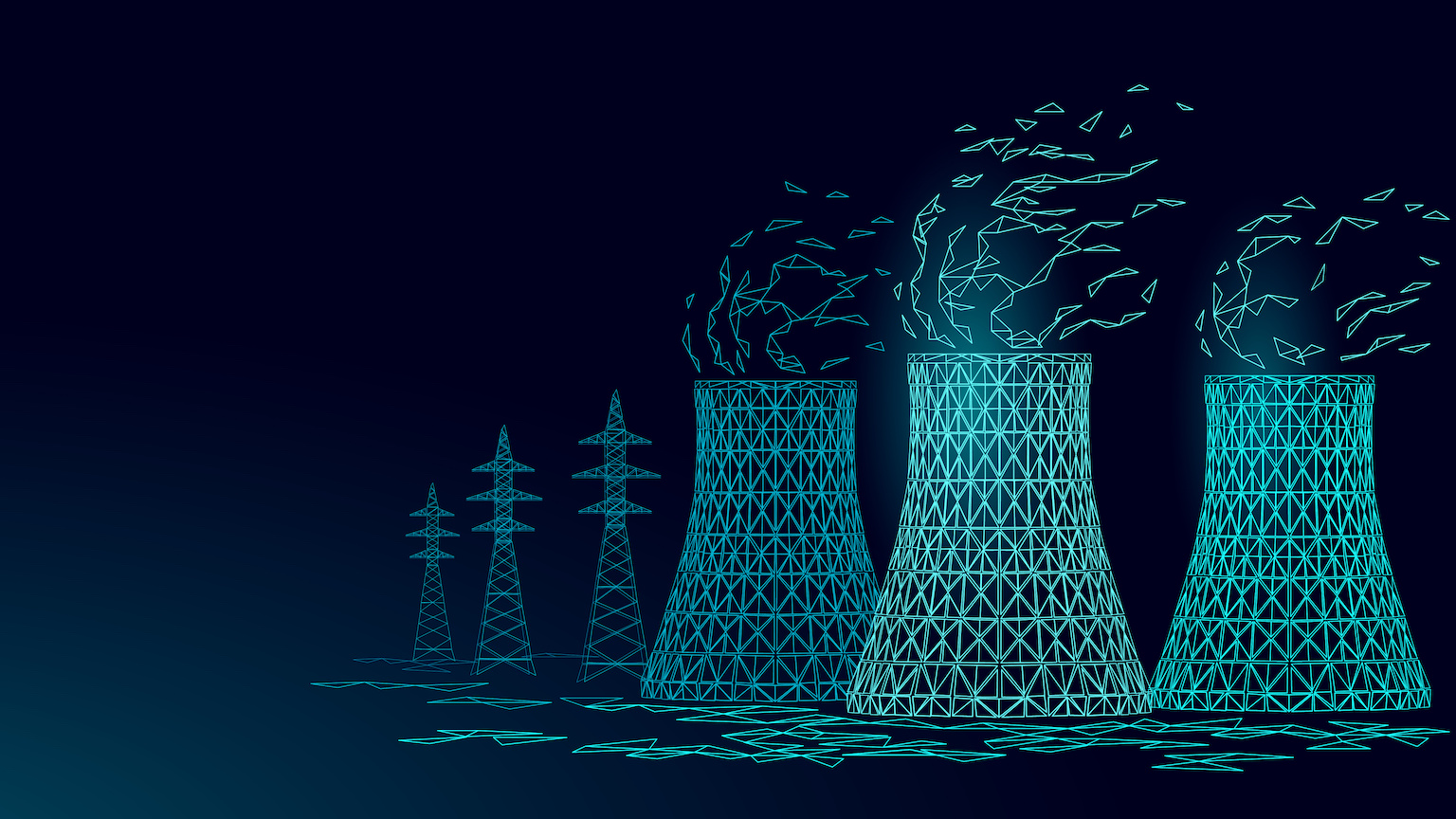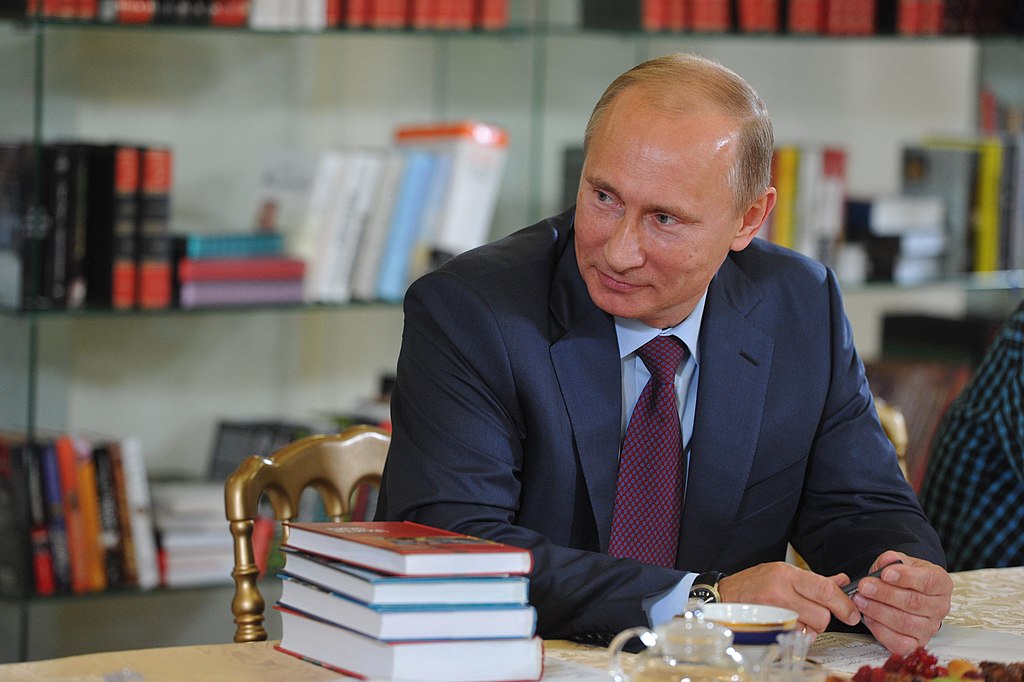Fossil fools: How Germany’s fear of nuclear power put Putin in charge of Europe
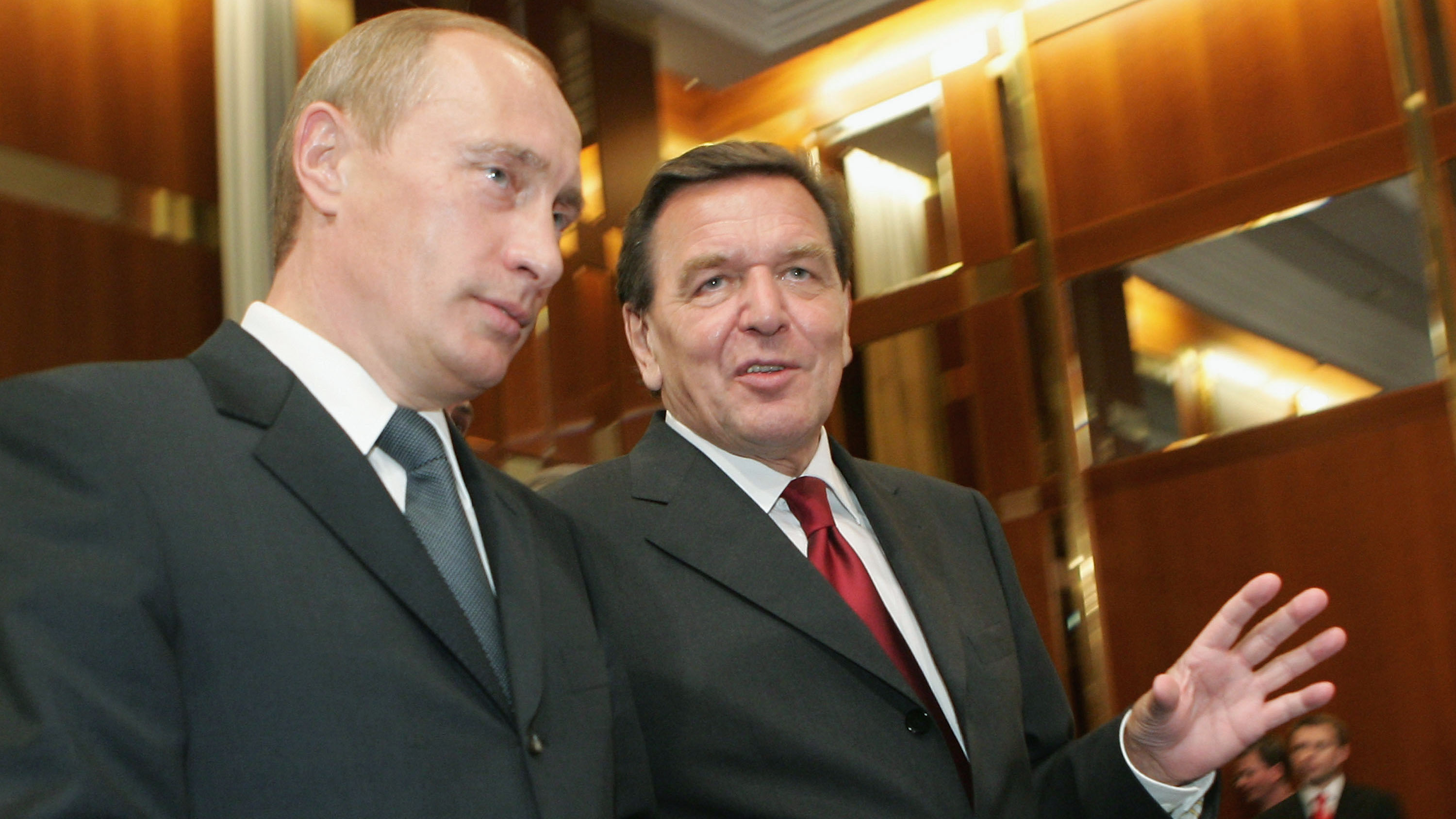
- Germany has a long-standing aversion to nuclear power. As a result, its economy is addicted to Russian fossil fuels.
- Despite Russia’s invasion of Ukraine, Germany refuses to ban Russian oil and gas — such is the extent of its energy dependence on an enemy nation.
- Germany wants to lead the world to a clean energy future, but technophobic, anti-nuclear sentiments will prevent that.
On January 1st, 2000, a new leader of Russia ascended to power: Vladimir Putin. After his official inauguration that summer, Western leaders greeted him with open arms, hoping to leave Cold War attitudes in the 20th Century. British Prime Minister Tony Blair would call him a reformer, visit him in the Kremlin, and welcome him into number 10. President Bill Clinton stated that “no doors can be sealed shut to Russia” and would even float the prospect of welcoming Russia into the EU and NATO. Gerhard Schröder, then leader of Germany, would embrace Putin too, first politically, then personally and professionally.
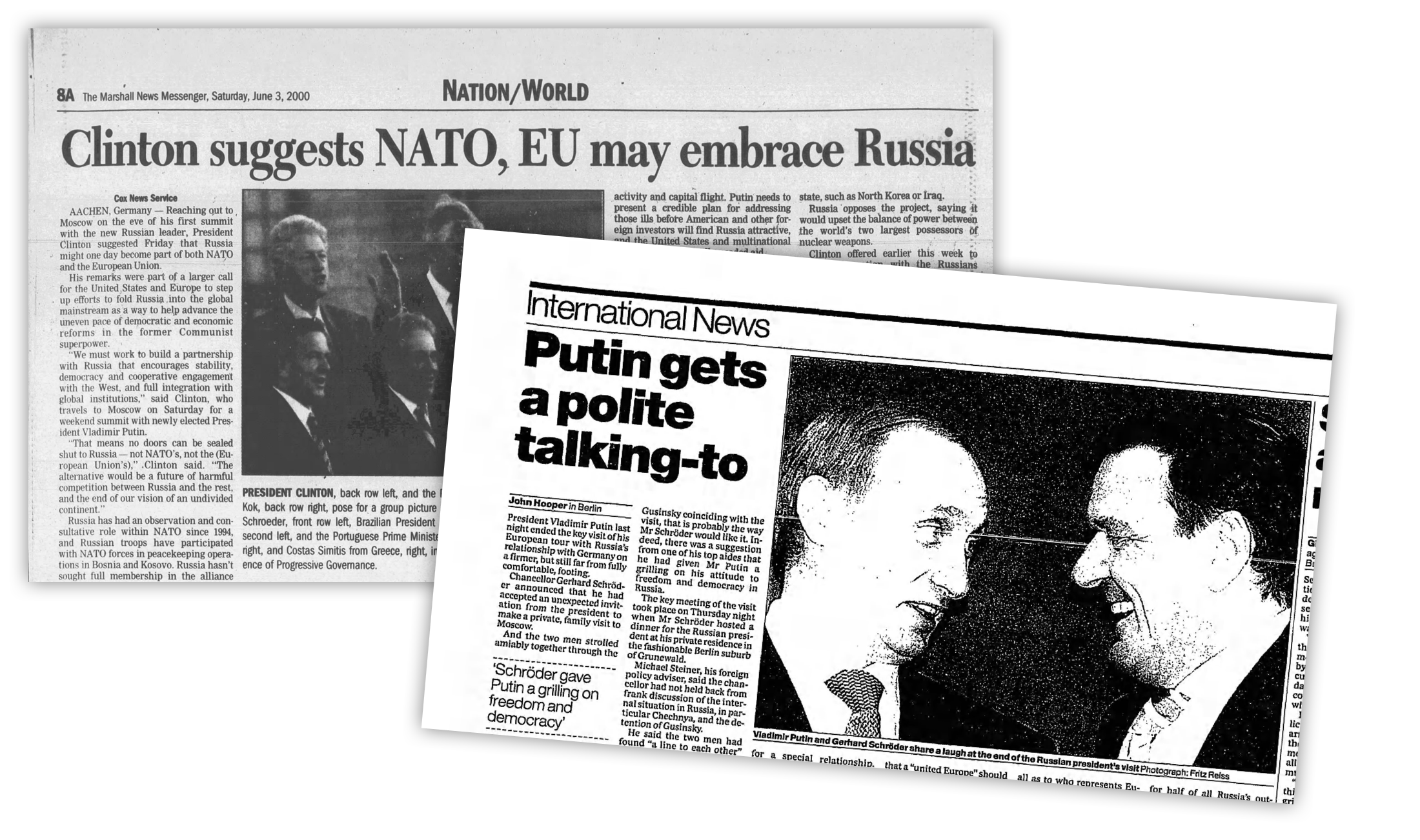
Nuclear power? Nein danke
Elected in 1998 to lead a coalition with the Green Party, Schröder ran on the promise of phasing out nuclear power, a politically popular idea in Germany with a history of direct action and its own iconic tagline: “Atomkraft? Nein Danke.” (“Nuclear Power? No Thank You.”)
After years of negotiation, an agreement was announced with energy companies in June 2000: the nuclear phase-out would finish around the beginning of 2020. The day after this announcement, Vladimir Putin would make his first major trip to meet a foreign leader: Chancellor Schröder, along with German business leaders who were encouraged to invest in Russia. In the proceeding years, Germany would ramp up trade with Russia, justified by the popular post-Cold War presumption that trade would decrease the chances of conflict. A big part of that trade would involve buying Russian energy.
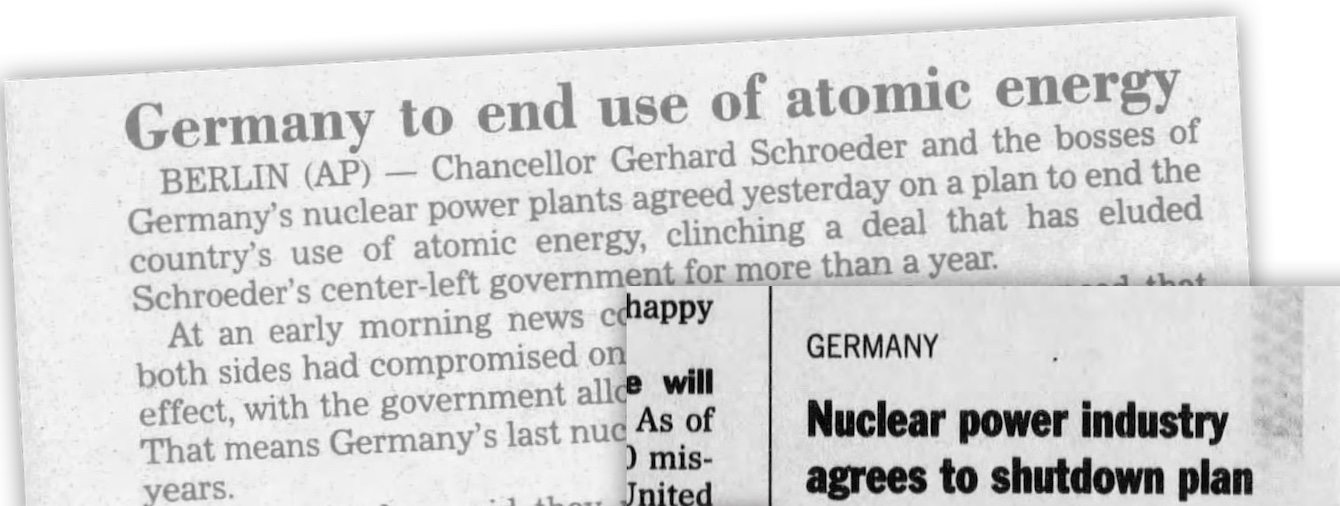
Schröder and Putin’s bromance would blossom in the following years and decades. Schröder would call Putin a “flawless democrat,” defend the questionable Ukrainian election of the Kremlin-backed Viktor Yanukovych, and sign a deal for a Russian gas pipeline — later named Nordstream — in his final days as Chancellor. The project was run by the Russian company Gazprom, which was majority-state owned and headed by Matthias Warnig, a former Stasi officer. Days after Schröder left office in 2005, he joined the Nordstream project as the head of its shareholders committee.
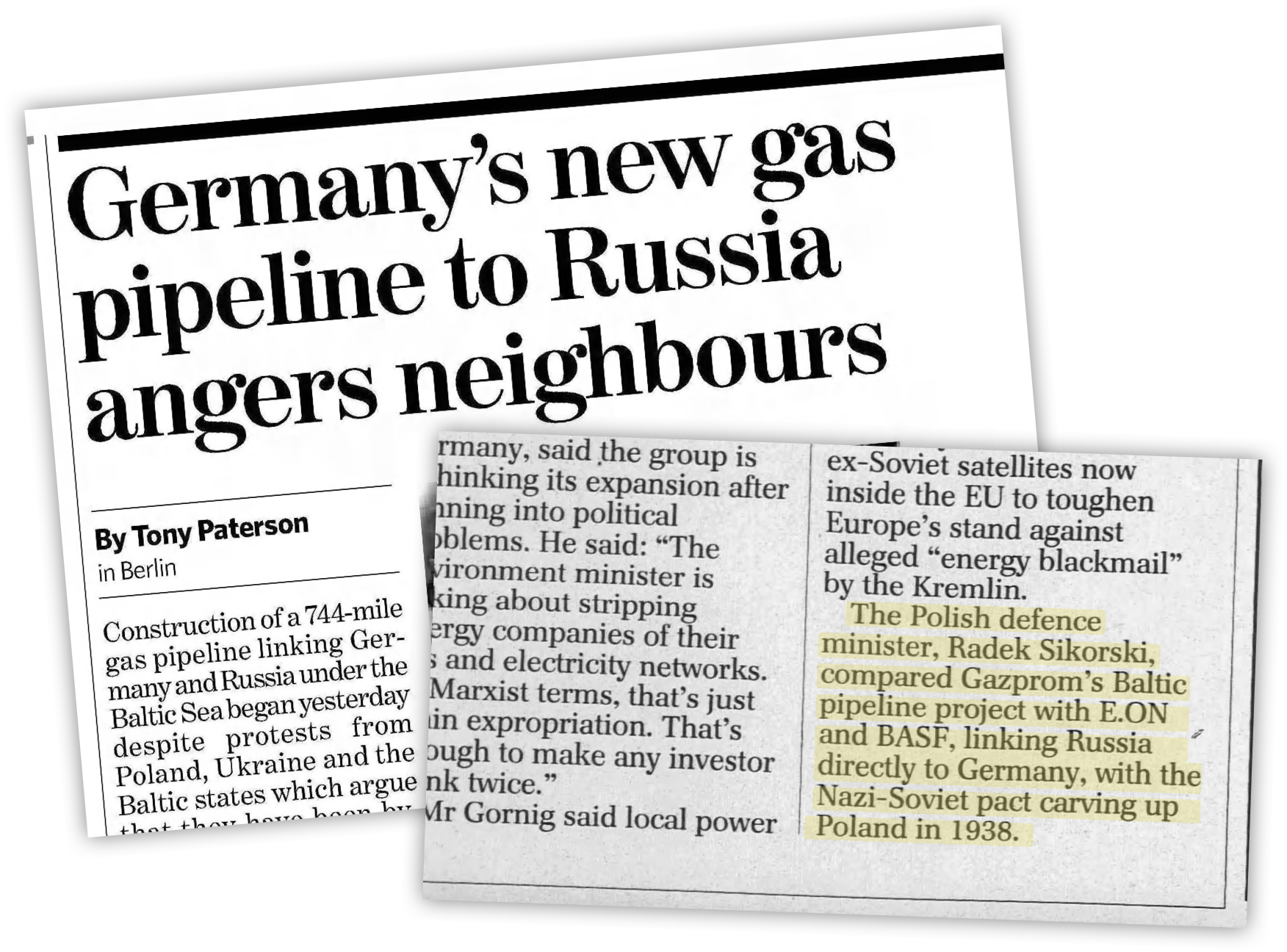
Poland requested that Angela Merkel, who succeeded Schröder, renegotiate the deal, but she refused. In response, Polish defense minister Radek Sikorski compared it to the 1939 pact between the USSR and Nazi Germany, a prescient comment he was forced to apologize for at the time. The concern? This pipeline, unlike other Russian ones, would avoid Poland and Ukraine, giving them less leverage over Russia. The U.S. and the EU put sustained pressure on Germany to reduce its reliance on Russian energy. In a sign that energy security was being taken more seriously, Merkel briefly vowed in 2010 to extend the life of Germany’s nuclear power plants to 2036.
The Fukushima fallout
Not long after this, the Fukushima nuclear accident happened, which brought slowly fading fears of nuclear power to the fore. Already politically unpopular in Germany, nuclear now felt politically impossible. Merkel reverted back to the deadline of the 2020s for a nuclear phase-out. Government ministers insisted they would replace lost energy via cleaner methods by 2022, reducing the nation’s environmental impact and reliance on Russian energy. Others warned the policy would increase consumption of coal and reliance on Russia energy. In subsequent years, Germany’s fossil fuel use and Russian energy imports both increased.
While Fukushima may appear like a reasonable reason to abandon nuclear power, the conditions that lead to that disaster — an earthquake-triggered tsunami combined with coastal power plants — were not risk factors for German nuclear power plants. And while most left-wing environmentalists doubled down on their aversion to nuclear power in its aftermath, not everyone did. George Monbiot, writer for The Guardian and one of the most influential Western environmentalists, announced the disaster had actually made him pro-nuclear power. His argument? The data shows that nuclear is safer than coal by orders of magnitude. He didn’t love it, but it was better than the alternative. Reversing, slowing, or stopping nuclear power production would result in more burning of coal. This is exactly what happened in Japan, China, and Germany in the aftermath.
Because Germany failed to sufficiently replace energy output from nuclear with renewables, its coal consumption increased. Its non-nuclear options were slowed by budget constraints and even protests, such as strong opposition to wind power lines. Russian gas consumption increased too, which is used to produce some of Germany’s electricity. Then, another Russian pipeline, Nordstream 2, would be approved by Germany in 2017, which committed $1.8 billion to the project.
Anti-nuclear chickens come home to roost
As that fateful deadline of the nuclear shutdown approached, 2022, these geopolitical miscalculations and wishful thinking would come to a head. Russia had more leverage over Germany than it had ever had. Yet, despite the 2008 invasion of Georgia and the 2014 annexation of Crimea, Germany continued to behave as if these economic entanglements were a preventative measure against Russian aggression, even as allies sounded alarm bells.
On December 1st, 2021, the U.S. warned that Russia may be planning to invade Ukraine. A military buildup on the border had been growing since early November, but many dismissed it as a geopolitical flex. The prospect was unthinkable: after all, Russia was dependent on oil revenue from Europe and Europe on oil from Russia, especially Germany.
A week later, Olaf Scholz was sworn in as the new Chancellor of Germany, replacing Merkel after a 16-year reign. In his first trip abroad, Scholz sat with French President Emmanuel Macron at the Élysée Palace. When a reporter asked why Germany, unlike France, had opposed the EU labeling nuclear power as sustainable energy in the fight against climate change, Scholz skirted the question, retorting, “Each country pursues its own strategy to fight man-made climate change.”
For context, 70% of France’s electricity comes from nuclear power, due to a long-running focus on energy security. Germany, on the other hand, gets 13.3% from nuclear. Days later, Scholz would double down on plans to phase out nuclear power, despite rising energy prices and increased Russian aggression. In 2021, 40.9% of German electricity was produced by coal, oil, and gas, a meaningful percentage of which is imported from Russia. In late December, Germany would shut half of its nuclear power plants, only a day after U.S. President Joe Biden threatened Russia with sanctions. Monbiot compared this act of self-sabotage to the UK’s Brexit.
When, on January 14th, the U.S. would warn of a Russian false-flag operation to justify an invasion of Ukraine, Western countries began to support Ukraine with weapons shipments. But Germany refused to join them, instead offering Ukraine a paltry 5000 helmet. And Putin? He got a meeting with Germany’s leader.
Fossil fools
By February, a Russian invasion of Ukraine appeared likely if not imminent. Yet, Scholz went ahead with meeting Putin, the very same day that former Chancellor Schröder — who only a week prior accused Ukraine of “saber-rattling” — was nominated to the board of Gazprom. Putin promised Scholz he was not planning to invade Ukraine.
Soon after, Putin made his intentions plainly obvious when he recognized Ukrainian regions Luhansk and Donetsk as independent. To his credit, Scholz halted the certification process for the recently completed Nordstream 2 pipeline, but the next day, Germany’s environment minister threatened to use the European courts to block Poland’s plans to build nuclear power stations (some of which were close to Germany).
A full scale invasion of Ukraine began in the following days. So caught off-guard was the German government that its spy chief would end up stuck in Ukraine and taking a twp-day journey to escape, post-invasion.
As war crimes mounted, Germany radically changed decades of foreign policy. It committed $100 billion to military spending and jeopardized its investment in Nordstream 2. Briefly — oh, so briefly — Germany considered reopening those recently closed nuclear power plants, but then ultimately decided against it. It did, however, reopen coal plants.
At the same time, Germany was mindful of its dependency on Russian energy. Chancellor Scholz would resist banning Russian oil imports and became the main obstacle in Europe cutting off Russia from the SWIFT banking system. Calls for Germany to ban Russia’s fossil fuels continue to fall on deaf ears, even to members of the Green Party. Economic minister and former Green Party leader Robert Habeck said that shutting off Russian oil and gas would lead to “mass poverty in Germany.” Notably however, Germany just recently announced a deal to replace Russian gas with supplies from Qatar.
The irony of post-WWII Germany
National guilt over its Nazi past has caused the German public to become radically pacifist, seeking to foster peace and love, not hate and war. Germany has adopted the feel-good mindset of the 1960s peace movement, in which demilitarization necessarily leads to peace and nuclear power only leads to environmental harm. A well-intentioned but shallow effort to repent for its sins from the 20th century has backfired.
Germany finds itself once again enabling a murderous dictator to run rampant in Europe, though this time it is due to incompetence and technophobia rather than malice. Germany leading the world? Nein danke.
